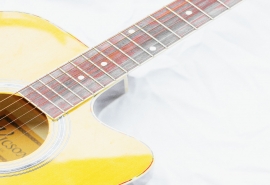
用 bell 造句,要简单的?
bell, 名词,铃,钟声,铃声,钟。
动词,鸣钟,系铃于,给……装上铃,敲钟。
例句:我听见学校的铃声响了。
I heard the school bell ring.
警钟响了。
An alarm bell went off.
动词,鸣钟,系铃于,给……装上铃,敲钟。
例句:我听见学校的铃声响了。
I heard the school bell ring.
警钟响了。
An alarm bell went off.
用 bell 造句,要简单的
I had just enough time to finish eating before the bell rang and I was off to my first class.
我在铃响前刚好有时间吃完,然后就去上第一节课了。
我在铃响前刚好有时间吃完,然后就去上第一节课了。
英语造句
一般时,过去式,将来时造句,25条*3的格式一一般现在时、1.She works in a factory.(她在一个工厂工作。) 2.Mike gets up at seven o'clock every day.(迈克每天七点钟起床。) 3.He doesn't know what to do.(他不知道该做什么。) 4.I搜趣网 think you are right.(我认为为你是对的。)
三一般搜趣网过去时、Sally told a story to me just now.(刚才萨利给我讲了个故事。) She gave me the notebook yesterday.(昨天她给了我这个笔记本。) Alice caught a cold a week ago.(一个星期前爱丽丝感冒了。) The teacher praised me after examing my homework.(检查完我的家庭作业后老师表扬了我。)
一般现在时
Rice is grown in the south of the states.
大米长在南方的州上.
We are not allowed to enter the chemistry lab without a teacher.
我们不允许在没有老师陪同的情况下进入实验室.
2. 一般过去时
The building of a new car factory was agreed on last month.
一家新汽车工厂的建筑上个月已经被同意了.
He had a strange way of making his classes lively and his lessons were not easily forgotten.
他有一种特殊的使课堂活跃的方法,他的课总是不容易被遗忘.
一般过去时表示(1)过去某个特定时间发生,并且一下子就完成了的动作(即:非持续性动作),也可以表示(2)过去习惯性的动作。一般过去时不强调动作对现在的影响,只说明过去。
I had a word with Julia this morning.今天早晨,我跟朱丽亚说了几句话。(1)
He smoked many cigarettes a day until he gave up. 他没有戒烟的那阵子,烟抽抽得可凶了。(2)
一般过去时常与表示过去的时间状语或从句连用,如:yesterday, last week, in 1993, at that time, once, during the war, before, a few days ago, when 等等。
句子中谓语动词是用一般过去时还是用现在完成时,取决于动作是否对现在有影响。
Have you had your lunch? 你吃过午饭了吗?(意思是说你现在不饿吗?)
Yes, I have. 是的,我已经吃过了。(意思是说已经吃饱了,不想再吃了。)
When did you have it? 你是什么时候吃的?(关心的是吃的动作发生在何时。)
I had it about ten minutes ago. 我是大约十分钟以前吃的。
Used to do something 表示过去常做而现在已经停止了的习惯动作。
I used to work fourteen hours a day. 我过去常常一天干十四个小时。
一般过去时的基本用法
1 带有确定的过去时间状语时,要用过去时
如:yesterday(昨天)、two days ago…(两天前…… )、last year…(去年…)、the other day(前几天)、once up on a time(过去曾经)、 just now(刚才)、in the old days(过去的日子里)、before liberation(解放前…)、 When I was 8 years owww.souquanme.comld(当我八岁时…)
Did you have a party the other day?
前几天,你们开了晚会了吗?
Lei Feng was a good soldier.
雷锋是个好战士。
3. 一般将来时
Cars will be sent abroad by sea.
汽车将经由水路运QTntW往国外.
Plenty of jobs will be given to school-leavers.
学校毕业生将有大量工作机会.
4. 过去将来时
The manager said the proje搜趣网ct would be completed by the end of the year.
经理说这项计划将在今年年底完成.
The workers told me that the car would be mended as soon as possible.
工人们告诉我这辆汽车将尽快被修好.
三一般搜趣网过去时、Sally told a story to me just now.(刚才萨利给我讲了个故事。) She gave me the notebook yesterday.(昨天她给了我这个笔记本。) Alice caught a cold a week ago.(一个星期前爱丽丝感冒了。) The teacher praised me after examing my homework.(检查完我的家庭作业后老师表扬了我。)
一般现在时
Rice is grown in the south of the states.
大米长在南方的州上.
We are not allowed to enter the chemistry lab without a teacher.
我们不允许在没有老师陪同的情况下进入实验室.
2. 一般过去时
The building of a new car factory was agreed on last month.
一家新汽车工厂的建筑上个月已经被同意了.
He had a strange way of making his classes lively and his lessons were not easily forgotten.
他有一种特殊的使课堂活跃的方法,他的课总是不容易被遗忘.
一般过去时表示(1)过去某个特定时间发生,并且一下子就完成了的动作(即:非持续性动作),也可以表示(2)过去习惯性的动作。一般过去时不强调动作对现在的影响,只说明过去。
I had a word with Julia this morning.今天早晨,我跟朱丽亚说了几句话。(1)
He smoked many cigarettes a day until he gave up. 他没有戒烟的那阵子,烟抽抽得可凶了。(2)
一般过去时常与表示过去的时间状语或从句连用,如:yesterday, last week, in 1993, at that time, once, during the war, before, a few days ago, when 等等。
句子中谓语动词是用一般过去时还是用现在完成时,取决于动作是否对现在有影响。
Have you had your lunch? 你吃过午饭了吗?(意思是说你现在不饿吗?)
Yes, I have. 是的,我已经吃过了。(意思是说已经吃饱了,不想再吃了。)
When did you have it? 你是什么时候吃的?(关心的是吃的动作发生在何时。)
I had it about ten minutes ago. 我是大约十分钟以前吃的。
Used to do something 表示过去常做而现在已经停止了的习惯动作。
I used to work fourteen hours a day. 我过去常常一天干十四个小时。
一般过去时的基本用法
1 带有确定的过去时间状语时,要用过去时
如:yesterday(昨天)、two days ago…(两天前…… )、last year…(去年…)、the other day(前几天)、once up on a time(过去曾经)、 just now(刚才)、in the old days(过去的日子里)、before liberation(解放前…)、 When I was 8 years owww.souquanme.comld(当我八岁时…)
Did you have a party the other day?
前几天,你们开了晚会了吗?
Lei Feng was a good soldier.
雷锋是个好战士。
3. 一般将来时
Cars will be sent abroad by sea.
汽车将经由水路运QTntW往国外.
Plenty of jobs will be given to school-leavers.
学校毕业生将有大量工作机会.
4. 过去将来时
The manager said the proje搜趣网ct would be completed by the end of the year.
经理说这项计划将在今年年底完成.
The workers told me that the car would be mended as soon as possible.
工人们告诉我这辆汽车将尽快被修好.





